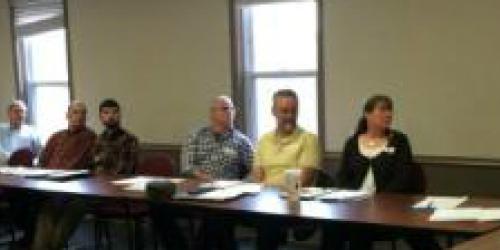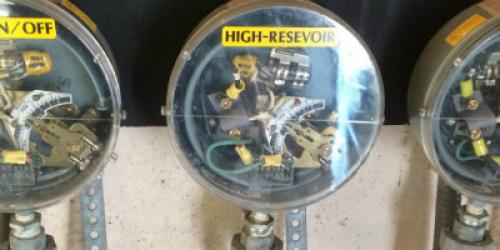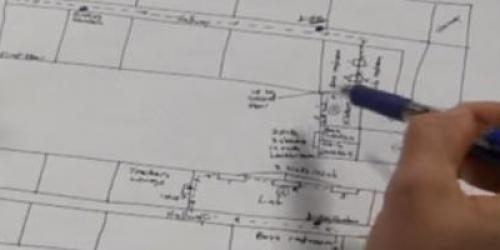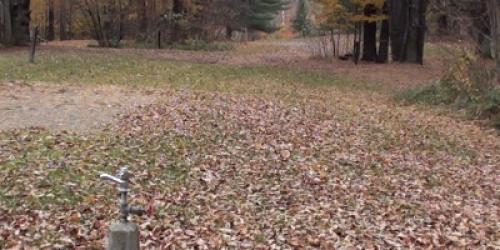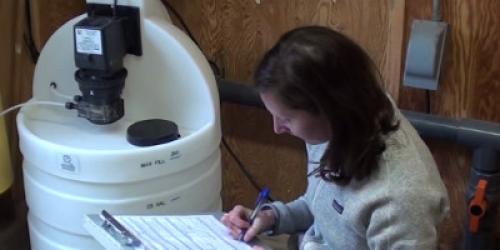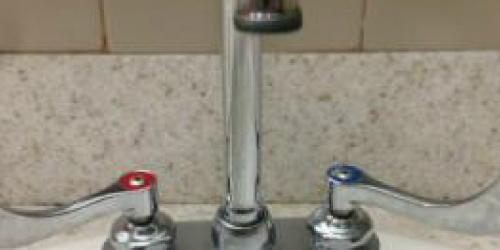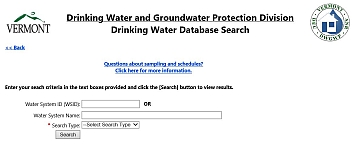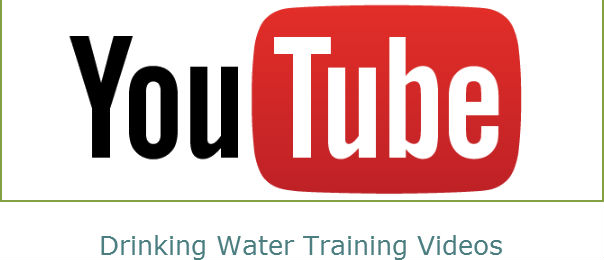In Vermont, people assume that the drinking water they consume while recreating, dining out, traveling, and staying overnight at public facilities is safe to drink. To make this assumption a reality, the Environmental Protection Agency (EPA) and the Vermont Drinking Water and Groundwater Protection Division (DWGWPD) have guidelines to help facilities serving the public provide safe drinking water. These guidelines apply to transient non-community (TNC) water systems.
What is a TNC Water System?
A TNC water system is any publicly or privately owned establishment that has its own drinking water source(s), provides water for human consumption, and serves an average of 25 or more people per day for a minimum of 60 days per year. The persons served need not be the same people.
Some examples of businesses that are commonly TNC water systems are airports, lodging facilities (bed and breakfasts, hostels, hotels, motels, inns, and lodges), campgrounds, churches, clubs, golf courses, medical offices, fitness centers, marinas, recreational facilities, parks, rest areas, food service establishments (restaurants, delis, bakeries, cafes, and snack bars), service stations, summer camps, and welcome centers. As represented by this list, many TNC water systems are the small businesses that help make Vermont unique and that are the mainstay of the state’s tourism industry. The DWGWPD regulates approximately 715 TNC water systems.
Operating as a Public TNC Water System
Active public TNC water systems are subject to a variety of State and Federal requirements. Review the list below or click on the images at the top of this page to find out more information about a specific requirement.
- Registration and Updates: All public water systems must register with the DWGWPD. Once registered, active water systems must ensure that the DWGWPD has current contact and ownership information.
- Permits:
- Source Permit: A source permit is required for any new source, hydrofracturing deepening of an existing source, or any increase in withdrawal from an existing source.
- Construction Permit: A construction permit is required for all proposed new water systems and for modification, repair, or expansion of the capacity, treatment, storage, or distribution piping of an existing water system.
- Wastewater System and Potable Water Supply Permit (WW): A WW Permit is required for soil-based wastewater systems with flows less than 6,500 gallons per day, for potable water supplies (water supplies that are not Public), and for municipal water and sewer connections. Construction of a new or modification to an existing TNC water system may require a new or amended WW Permit.
- Operating Permit: All public water systems must have an operating permit. TNC water systems qualify for the General Operating Permit or an Individual Operating Permit based on the source water type and treatment.
- Water System Operator: Public drinking water systems are required to have a Vermont-Certified Drinking Water Operator. The class or level of certified operator that is required for a water system is determined by the source water type, treatment, and population of the water system.
- Water Quality Monitoring: All public drinking water systems must conduct water quality monitoring to demonstrate adherence to primary drinking water standards. TNC water systems must perform source and routine water quality monitoring.
- Reporting, Recordkeeping, and Public Notification.
- Sanitary Surveys: The DWGWPD must perform a sanitary survey of all TNC water systems at a minimum of every 5 years.
The Non-Community Operations Section provides operational and compliance oversight of public TNC water systems in Vermont. We work closely with the owners and operators of Vermont's TNC water systems to ensure that the public has safe drinking water when they eat, stay, and play throughout Vermont. Contact us today with any questions!
Non-Community Operations Section Supervisor:
Meredith Maskell: meredith.maskell@vermont.gov or 802-585-4896
Non-Community Systems Specialists:
Ashliegh Belrose: ashliegh.belrose@vermont.gov or 802-636-7528
Amanda Faust: amanda.faust@vermont.gov or 802- 802-636-7368
Sarah Bolaski: sarah.bolaski@vermont.gov or 802-461-6886

